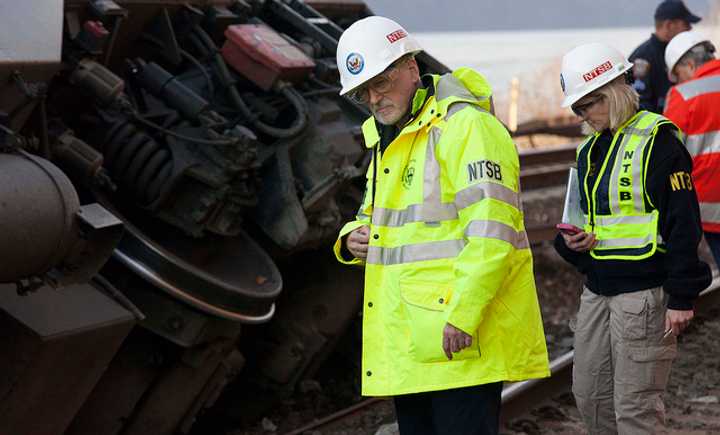The FRA released a report in March on its investigation, Operation Deep Dive, following several accidents. The most notable was the Dec. 1 derailment in the Bronx that claimed four lives and injured 70 others. It says that Metro-North has put on-time performance ahead of safety and maintaining its infrastructure and demanded it submit plans by May 13 for improving its safety department’s effectiveness and employee training.
While Metro-North has yet to submit its plans, spokeswoman Marjorie Anders said the railroad has already taken several steps to improve safety. In addition to implementing a risk reduction program, it has separated safety and security into two separate departments, with safety reporting directly to the president.
Former Metro-North President Howard Permut resigned earlier this year and was replaced by Joseph Giulietti, who said safe service is their primary goal in an announcement that commute times will be cut for trains going into Grand Central Terminal on the Hudson, New Haven and Harlem lines effective May 11.
“This train schedule supports our ongoing efforts to serve our customers while providing our maintenance forces the time they need to inspect, maintain and repair the system,” Giulietti said in a statement.
The Operation Deep Dive report found that workers didn’t have the track time needed to perform essential repairs and were “rushed when responding to signal failures.” It also found that track inspectors had inadequate training.
The new schedule into Grand Central will allow for repairs and maintenance in the midday off-peak and on nights and weekends.
In addition to safety improvements made immediately after the Dec. 1 derailment, Anders said they have taken several steps on their own.
“Without an NTSB recommended nor an FRA mandate, Metro-North decided to install alerters on the older equipment and that effort is underway and will be completed by the end of 2014,” she said.
Alerters are a safety system that sounds an alarm when an engineer remains idle while the train is in motion.
On April 30, the board of the Metropolitan Transportation Authority, which oversees all public transportation in New York state, approved spending $11.3 million more on a $428.5 million contract to install positive train control on all of its 474 Metro-North and 836 Long Island Rail Road cars. The extra money will accelerate the process of retrofitting train cars by up to two years from 2019 to April 2017, with an overall implementation date of 2018.
The Rail Safety Improvement Act of 2008 already sets a Dec. 31, 2015 deadline for implementing positive train control.
“The Rail Safety Improvement Act of 2008 establishes penalties in the Code of Federal Regulations 49 part 236. Whether they impose them is a question for the FRA,” Anders said.
The FRA declined to comment on Metro-North’s safety improvements until it receives the railroad’s safety improvements plans.
Click here to follow Daily Voice White Plains and receive free news updates.
